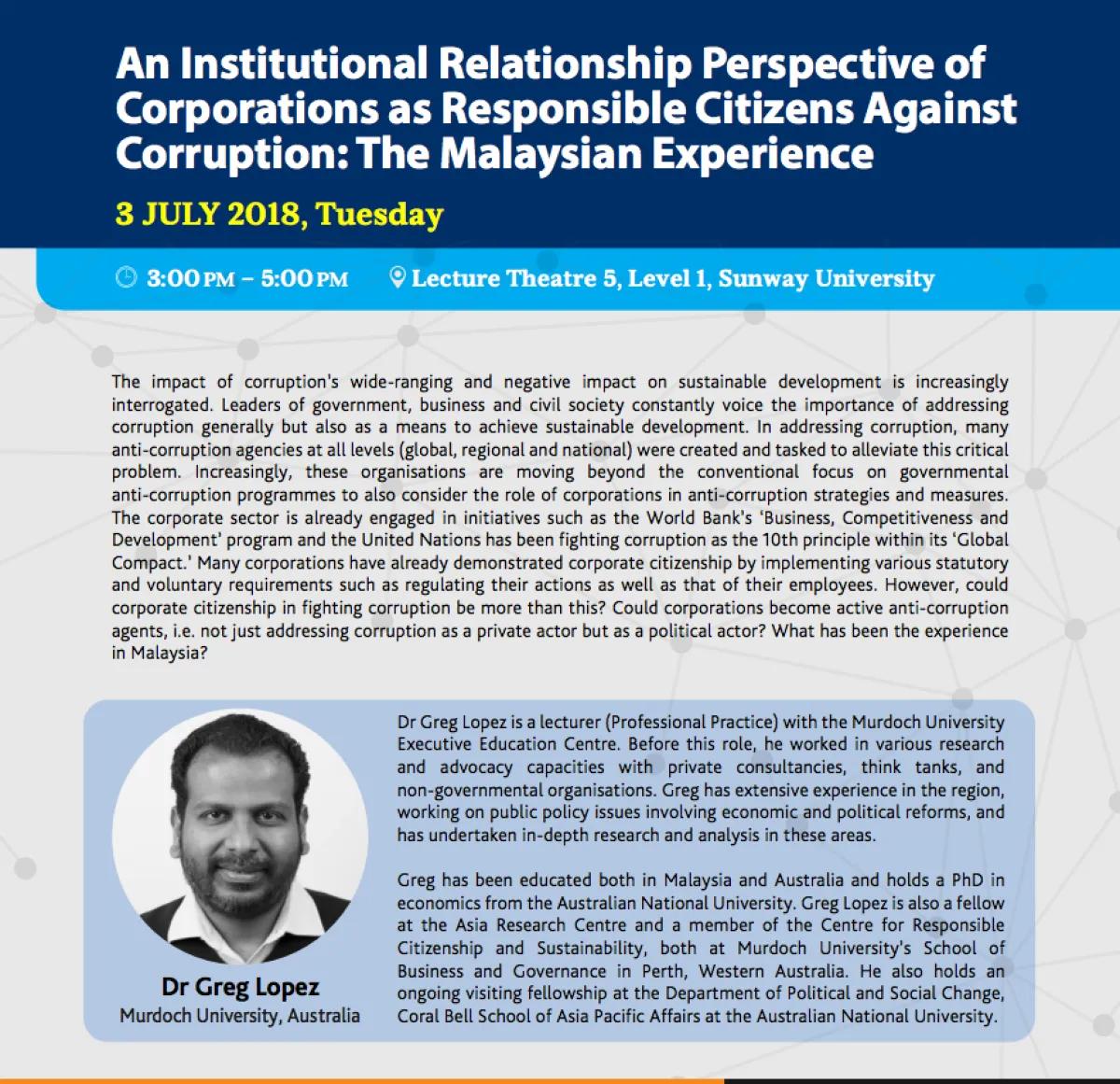Abstract
The impact of corruption’s wide-ranging and negative impact on sustainable development is increasingly interrogated. Leaders of government, business and civil society constantly voice the importance of addressing corruption generally but also as a means to achieve sustainable development. In addressing corruption, many anti-corruption agencies at all levels (global, regional and national) were created and tasked to alleviate this critical problem. Increasingly, these organisations are moving beyond the conventional focus on governmental anti-corruption programmes to also consider the role of corporations in anti-corruption strategies and measures. The corporate sector is already engaged in initiatives such as the World Bank’s ‘Business, Competitiveness and Development’ program and the United Nations has been fighting corruption as the 10th principle within its ‘Global Compact.’ Many corporations have already demonstrated corporate citizenship by implementing various statutory and voluntary requirements such as regulating their actions as well as that of their employees. However, could corporate citizenship in fighting corruption be more than this? Could corporations become active anti-corruption agents, i.e. not just addressing corruption as a private actor but as a political actor? What has been the experience in Malaysia?




